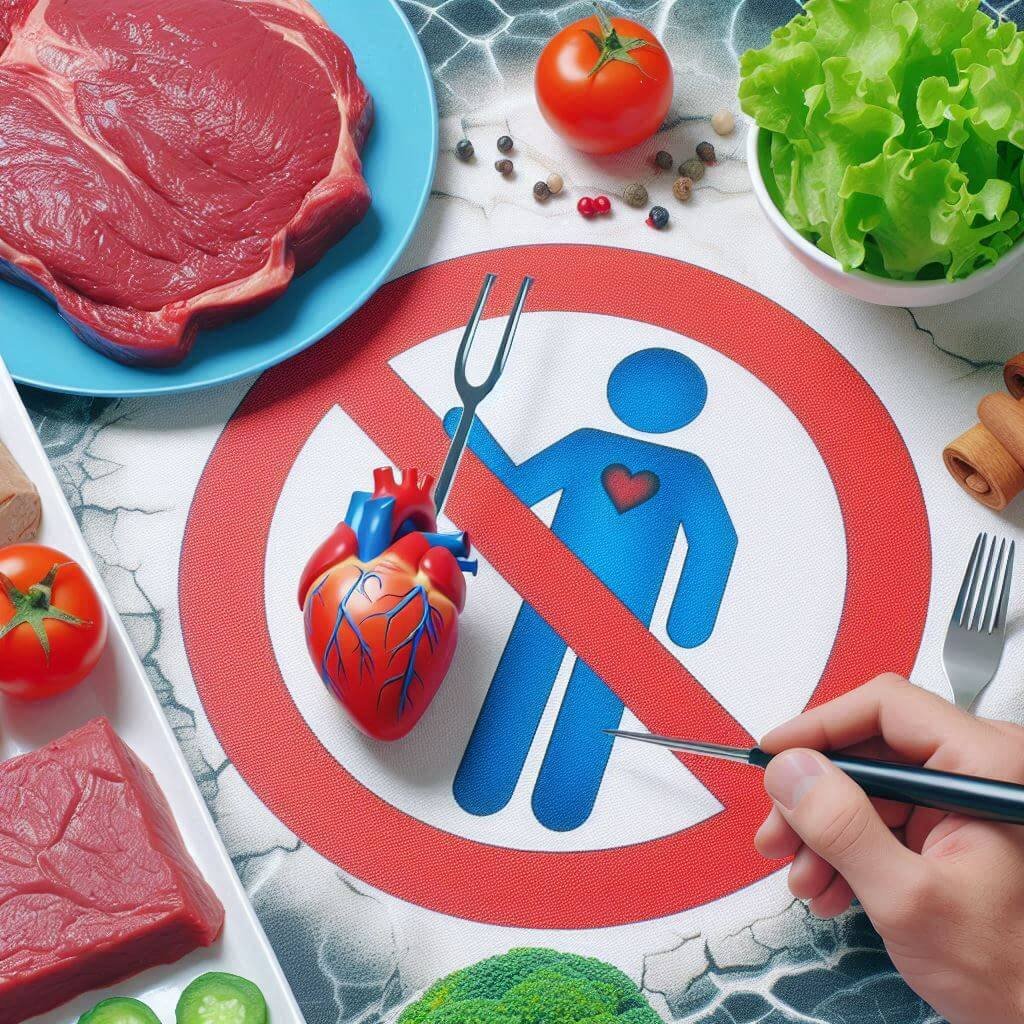Introduction: The Red Meat Rollercoaster
Imagine this: You’re at a family BBQ, eyeing a juicy burger, when your health-conscious cousin warns, “Red meat clogs your arteries!” Meanwhile, your gym buddy swears by his steak-heavy diet for “heart-healthy protein.” Who’s right? The answer isn’t black and white—it’s a sizzling shade of gray. Let’s dive into the science, myths, and practical tips to answer: Is red meat good for your heart?
Many people wonder, is red meat good for your heart? This question has sparked numerous studies and debates in the nutrition community.
Part 1: What Exactly Is Red Meat? (Click to Expand)
Interactive Infographic: Types of Red Meat
- Beef (steak, ground beef)
- Pork (chops, bacon)
- Lamb
- Processed Meats (sausages, deli meats)
Key Distinction:
- Unprocessed Red Meat: Fresh cuts, minimally altered.
- Processed Red Meat: Preserved with salt, nitrates, or smoke.
Why it matters: Processed meats are linked to higher heart risks than unprocessed ones.
Let’s explore further: is red meat good for your heart and how it fits into a balanced diet.
Part 2: The Science Behind Red Meat and Heart Health
Understanding whether is red meat good for your heart requires examining both its nutritional benefits and potential risks.
The Case Against Red Meat
Ultimately, the answer to is red meat good for your heart may depend on your overall dietary patterns and lifestyle choices.
- Saturated Fats:
- Red meat is high in saturated fats (~5g per 3oz beef), which can raise LDL (“bad”) cholesterol, a key risk factor for heart disease.
- Study Alert: A 2020 Journal of the American College of Cardiology review tied high saturated fat intake to a 18% higher heart disease risk.
- Heme Iron:
- Found in red meat, heme iron may promote oxidative stress, damaging blood vessels over time.
- TMAO (Trimethylamine N-Oxide):
- Gut bacteria convert compounds in red meat into TMAO, linked to artery plaque buildup.
The Case For Red Meat (in Moderation)
- Nutrient Density:
- Rich in protein, zinc, vitamin B12, and iron—critical for energy and immunity.
- Grass-Fed vs. Grain-Fed:
- Grass-fed beef has more omega-3s and antioxidants like CLA (conjugated linoleic acid), which may support heart health.
- Context Matters:
- A 2021 European Heart Journal study found no significant heart risk from moderate unprocessed red meat intake (1–2 servings/week) in balanced diets.
Interactive Quiz: Test Your Red Meat IQ
- Which has more saturated fat: 3oz of beef or salmon?
- True or False: Processed meats are classified as Group 1 carcinogens by WHO.
(Post Answers in comments)
Part 3: The “Heart-Health Report Card” for Red Meat
Interactive Chart: Grade Your Plate
| Factor | Grade | Why? |
|---|---|---|
| Saturated Fat | C- | Raises LDL cholesterol. |
| Protein Quality | A | Complete amino acids for muscle. |
| Sodium (Processed) | F | Linked to hypertension. |
| Omega-3s (Grass-Fed) | B+ | Anti-inflammatory benefits. |
Part 4: How to Enjoy Red Meat Safely (If You Choose To)
Interactive Poll: How often do YOU eat red meat?
- Daily
- Weekly
- Rarely
5 Heart-Smart Tips:
- Choose Lean Cuts: Opt for “loin” or “round” labels (e.g., sirloin, tenderloin).
- Limit Processed Meats: Swap bacon for turkey or tempeh.
- Marinate with Herbs: Rosemary and garlic reduce harmful compounds when grilling.
- Pair with Fiber: Serve with leafy greens or quinoa to balance saturated fats.
- Portion Control: Stick to 3–4oz (deck of cards size) per serving.
Recipe Spotlight: Mediterranean Beef Bowl
- Grass-fed beef, spinach, olives, tomatoes, and olive oil. Why? Combines lean protein with heart-healthy fats.
Part 5: What Experts Say
Dr. Sarah Hallberg, Medical Director at Virta Health:
“Occasional red meat can fit into a heart-healthy diet, but prioritize plants. The problem arises when it displaces veggies and whole grains.”
So, is red meat good for your heart? The evidence suggests a nuanced approach is necessary.
Dr. Dariush Mozaffarian, Cardiologist and Nutrition Scientist:
“Processed meats are the real villain. If you eat red meat, think ‘quality over quantity.’”
Part 6: Alternatives to Red Meat (Interactive Swap Guide)
To conclude, the question of is red meat good for your heart is complex, requiring a look at various factors including diet and health status.
Click to Compare:
- Chicken Breast: Lower saturated fat, same protein.
- Salmon: Omega-3 powerhouse.
- Lentils: Fiber-rich, budget-friendly.
- Tofu: Plant-based, versatile.
Pro Tip: Try “Meatless Mondays” to gradually reduce reliance on red meat.
Myth vs. Fact: Red Meat Edition
Myth: All red meat is equally harmful.
Fact: Processed meats (hot dogs, salami) are far worse due to additives and sodium.
Myth: Grass-fed beef is a “health food.”
Fact: It’s healthier than conventional beef but still contains saturated fat.
Conclusion: The Balanced Bite
While the question of is red meat good for your heart can vary based on consumption patterns, moderation and quality are key. Incorporating occasional servings of red meat, particularly lean cuts, can fit into a heart-healthy lifestyle.
Final Interactive Challenge: Next time you crave red meat, ask:
- Is this processed?
- What’s my portion size?
- What heart-healthy foods can I pair it with?
Your heart (and taste buds) will thank you! follow ZestBites






